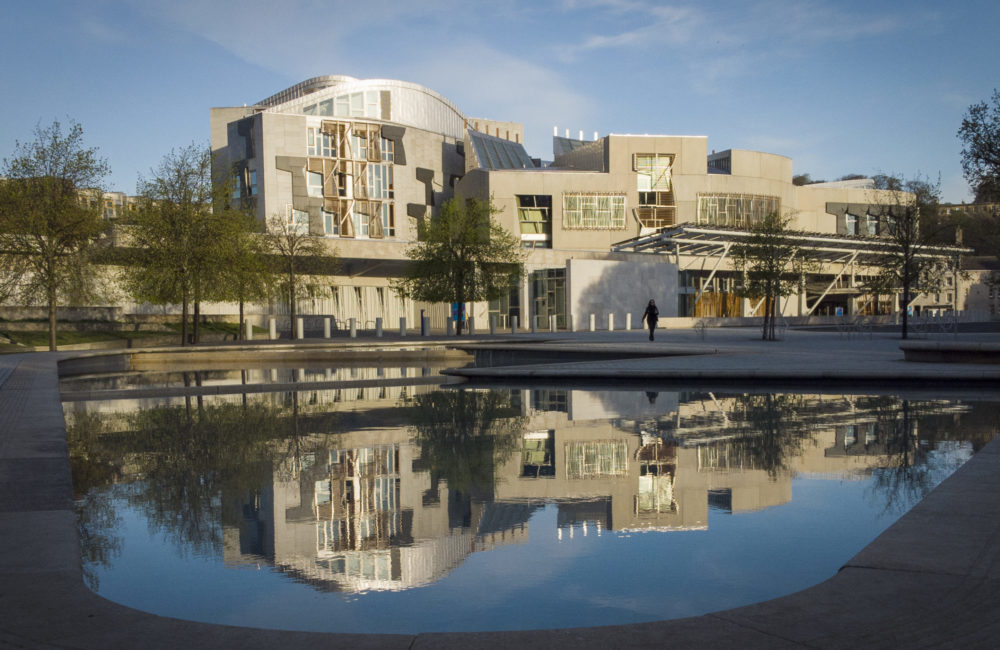UK Government acted lawfully when blocking Holyrood gender reforms, court rules

Scotland’s highest civil court has ruled that the UK Government’s blocking of controversial gender reforms was lawful.
The Scottish Government mounted the legal challenge earlier in the year after Westminster issued a never-before-used Section 35 order of the Scotland Act to prevent the Gender Recognition Reform (Scotland) Bill from receiving royal assent.
The legislation simplifies the process for transgender people to obtain a gender recognition certificate (GRC) and officially change their legally-recognised sex.
In her ruling published on Friday, Lady Haldane, who presided over two days of evidence at Edinburgh’s Court of Session in September, said the challenge “fails”.
She wrote: “I will accordingly sustain the pleas in law for the respondent, repel the pleas in law for the petitioners and dismiss the petition.”
Cross-party support
The legislation received cross-party support in Holyrood, passing by 86 votes to 39 last year after MSPs considered 153 amendments to the Bill in a marathon parliamentary session.
Campaigners against the reforms warned the legislation could risk the safety of women and girls while supporters argued it would make the process easier, removing barriers such as seeking a doctor’s diagnosis of gender dysphoria.
Lord Advocate Dorothy Bain, representing Scottish ministers, argued during the hearings that Scottish Secretary Alister Jack used the landmark power because of a “policy disagreement”.
She also argued the order was “unlawful” and was “inconsistent with the constitutional principles” of the UK, effectively preventing Holyrood from passing laws the UK Government did not agree with.
In her ruling, Lady Haldane said: “There is no reference, direct or indirect, to that being a concern motivating the making of the order. Whilst therefore I have no hesitation in accepting that the petitioners hold a sincere view as to what they suspect to be the motivation… I cannot on the material before me conclude that.”
Reserved legislation
The key argument put forward by David Johnston KC, acting on behalf of UK ministers, was that the policy could have an “adverse impact” on reserved equality legislation.
He said Scottish Secretary Alister Jack had “justified” grounds for using the order, stating it superseded or amended the 2004 Gender Recognition Act by altering the meaning of a GRC by removing the gender dysphoria diagnosis and lowering the application age to 16. UK laws require applications to be aged 18 to apply for a GRC.
Lady Haldane agreed, stating: “The words ‘full gender recognition certificate’ will no longer mean the same thing as they do currently.”
She added that “it cannot be asserted the meaning overall” has not changed.
She also said Section 35 “does not” impact on the separation of powers or “other fundamental constitutional principles”.
Writing on X, formerly Twitter, Scottish First Minister Humza Yousaf said: “Today’s judgment confirms beyond doubt that devolution is fundamentally flawed.
“The court has confirmed that legislation passed by a majority in Holyrood can be struck down by Westminster.”
He added, however, that ministers will “respect” the judgment.
Mr Jack welcomed the judgment, reiterating the “adverse effects” it would have had on UK-wide laws.
He said: “Following this latest court defeat from the Scottish Government, their ministers need to stop wasting taxpayers’ money pursuing needless legal action and focus on the real issues which matter to people in Scotland – such as growing the economy and cutting waiting lists.”
Disappointment
Colin Macfarlane, director of nations at LGBTQ+ charity Stonewall, who supplied written arguments to the case, expressed “disappointment”, adding: “This unfortunately means more uncertainty for trans people in Scotland who will be waiting once again to see whether they will be able to have their gender legally recognised through a process that is in line with leading nations like Ireland, Canada and New Zealand.”
Labour’s shadow Scottish secretary Ian Murray MP said: “It is disappointing this legalisation ended in the courts but this ruling should be respected.
“This is another demonstration of why both governments have to work together rather than spending taxpayers’ money fighting in courts and pitting communities against each other.”
Support our Nation today
For the price of a cup of coffee a month you can help us create an independent, not-for-profit, national news service for the people of Wales, by the people of Wales.





